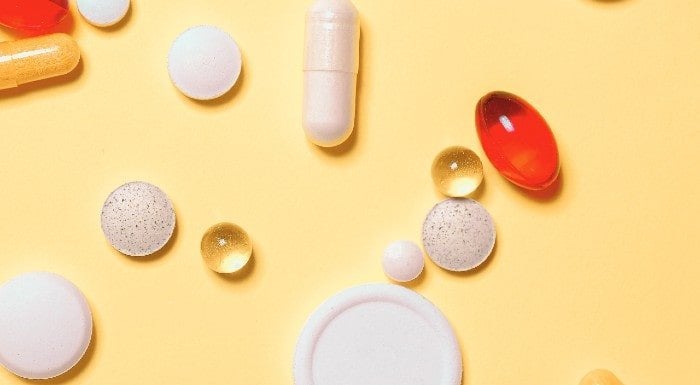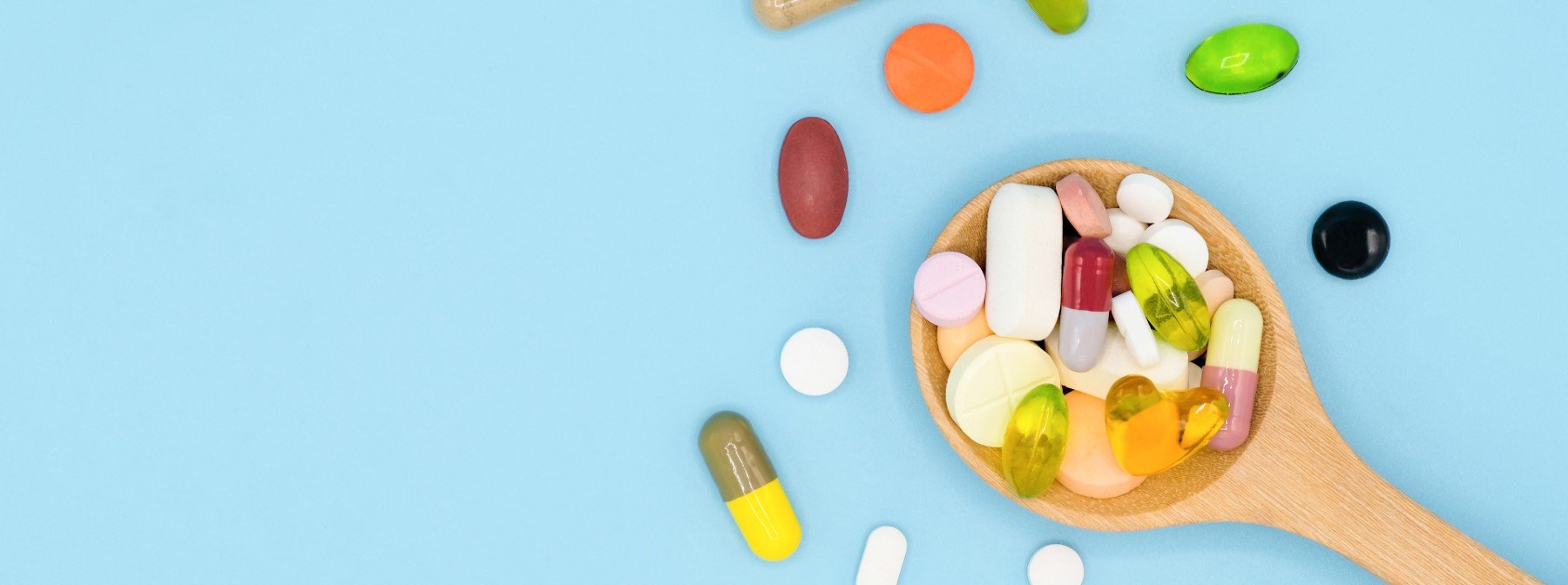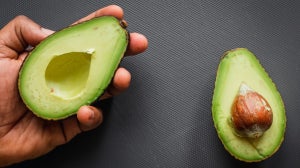
Vitamins play a crucial role in keeping us healthy.1 Different vitamins play different roles in the body, so it’s important to include a wide range in your diet. Whilst recommendations for most vitamins are the similar in both genders, there certain key vitamins that women require more of due to the different biological functions.2
Jump to:- Why are vitamins important?
- Do women need different vitamins to men?
- Which vitamins do women need?
- Myprotein women's multivitamins.
- How to choose the right women's multivitamin.

Why are vitamins important?
Vitamins play a key role in keeping us fit and healthy and it’s important to include a wide variety in your diet. Vitamins will help to preserve immunity, produce energy and help us perform optimally.1 Different vitamins have different biological roles and some vitamins are more important than others. Both age and gender are key factors that will dictate specific vitamin requirements.2
Do women need different vitamins to men?
For most vitamins, the requirements are the same between men and women with the daily dosage required dependant on body size.2 However, because of menstruation cycles, women have a higher requirement for vitamins involved in the production of red blood cells. These include iron, folate and B-vitamins. For example, between the ages of 19-50, women require nearly twice as much as iron as males.3
As women age, specific vitamin requirements also change. Postmenopausal women require less iron with a daily requirement the same as males (8.7mg).3 With ageing, calcium and vitamin D become more important in order keep bones healthy.1
During pregnancy certain vitamins also become more important for women. These include folate, iodine and calcium as they each play key roles in the baby’s development. Calcium and iodine remain important for new mothers who are breastfeeding.

Which vitamins do women need?
Pregnancy
- Iodine: essential for the development of the baby’s brain, iodine is required from the early stages of pregnancy and during breastfeeding to ensure breast milk contains enough iodine.4 It’s recommended that during pregnancy and breastfeeding that you consume around 200mg a day.4
- Folic acid: for those trying to get pregnant or up to 12 weeks pregnant it is recommended you consume 200ug plus a 400ug a day supplement of folic acid to reduce the risk of any problems with the baby’s development.5
- Calcium: important for the health of bones and teeth, calcium is particularly important during breastfeeding. It's recommended that breastfeeding mums consume 1250mg a day of calcium.6
Iron
A large amount of iron is stored in the haemoglobin of your red blood cells. The loss of blood during menstruation means there will be a loss of iron, which is why women between the ages of 19 and 50 need much more iron than males.
Due to its role in the production of haemoglobin, which carries oxygen around the body, iron is important for energy production deficiencies in iron may lead anaemia.7 Iron also plays a key role in the maintenance of a healthy immune system.
Vitamin D
Vitamin D's role ranges from immunity preservation to the function and recovery of muscles.8 It helps with the absorption of calcium meaning it helps with keeping bones and teeth healthy.
For women who are pregnant or breastfeeding, vitamin D’s role in calcium absorption may be particularly important as calcium is required for the baby’s development. As dietary sources of vitamin D are limited, our major source of vitamin D is the sun, it is more likely we will be deficient in the winter. This has led to recommendation of supplementing 1000iu of vitamin D during the chillier months.9
Vitamin B6
Like iron, vitamin B6 (also known as pyridoxine) helps the body form haemoglobin. As haemoglobin is crucial for energy, a lack of B6 may result in fatigue and tiredness 10, both common symptoms experienced during a woman’s period.
Food sources of B6 include pork, poultry soya beans, bananas, oats and milk. Its recommended women consume 1.2mg of vitamin B6 a day and it's advised that supplementation should not exceed 200mg a day.11
Vitamin B12
Vitamin B12 helps maintain the health of the nervous system and plays a role in the release of energy from food. Like vitamin B6, B12 is also involved in the production of red blood cells.
Good sources include meat, fish, milk, cheese eggs and breakfast cereals. It's recommended that you consume 1.5mg a day.11 For vegans this may make it difficult to get from the diet so supplementation may be worth considering.
Vitamin C
Vitamin C has a range of functions including the preservation of immunity, maintenance of healthy skin and help with wound healing. Vitamin C also allows the transport and absorption of iron.12 Vitamin C is found in a wide range of fruits and vegetables and between the ages of 19 and 64 you need 40mg a day.11
Myprotein Women's Multivitamins
Iron and Folic Acid
Containing 14mg of iron per serving, this supplement will help you hit the 14.8mg daily dose required between the ages of 19 and 50.5 It also contains 800ug of folic acid helping those considering pregnancy or already pregnant hit their increased requirements.
Multivitamin Gummies
a blend of 11 vitamins and minerals with a high vitamin C content which may help to preserve immunity. They come in a strawberry flavour and as they are chewable, they may be easier to consume if you struggle swallowing large tablets. Plus, they’re tasty so it’s much more difficult to forget to take them!
Vegan A-Z
contains a blend of 22 vitamins and minerals which will help support metabolism and immunity and blended in a vegan friendly manner.
How to choose the right women's multivitamin
Seek medical advice
Before taking a multivitamin supplement, it is important to check if you actually need it. Recommendations should be made on an individual basis and it’s important to check you are not doing any harm by taking certain vitamins in excess. If pregnant, check with your GP or midwife before taking a supplement.
Make sure you know what you need
For vitamins, more isn’t always better and excessive consumption of a specific vitamin can have negative health consequences.
Always check the ingredients of any supplements you are taking and follow the instructed dose to ensure you are not consuming too much. One key vitamin for pregnant women to check is vitamin A as too much can affect the baby’s development.11
Do your research
Making sure you check that a supplement has high quality ingredients is always important. And if you compete in sport professionally or at a high level, it is vitally important to use a supplement that has been batch tested by Informed Sport to prevent any cross contamination or banned substances.
Take Home Message
Whilst ensuring adequate vitamin intake is important for maintaining health in both genders, women need more of certain vitamins due to menstruation cycles. These include those that play a role in red blood cell production such as folate, iron, b-vitamins and vitamin C.
During pregnancy and breastfeeding requirements may also change, with calcium and vitamin D being important. It’s important to check with a medical professional before taking any supplement, especially when pregnant or following a certain diet.
READ THESE NEXT:
Our articles should be used for informational and educational purposes only and are not intended to be taken as medical advice. If you're concerned, consult a health professional before taking dietary supplements or introducing any major changes to your diet.
1. Biesalski Hans, K. and Jana, T., 2018. Micronutrients in the life cycle: Requirements and sufficient supply. NFS Journal, 11, pp.1-11.
2. Schwartz JB. Vitamin intake, recommended intake, and gender differences. J Gend Specif Med. 2001;4(1):11-5.
3. Bda.uk.com. 2021. Iron. [online] Available at: <https://www.bda.uk.com/resource/iron-rich-foods-iron-deficiency.html> [Accessed 18 February 2021].
4. Bda.uk.com. 2021. Iodine Food fact Sheet. [online] Available at: <https://www.bda.uk.com/resource/iodine.html> [Accessed 17 February 2021].
5. Bda.uk.com. 2021. Calcium. [online] Available at: <https://www.bda.uk.com/resource/calcium.html> [Accessed 17 February 2021].
6. Bda.uk.com. 2021. Calcium. [online] Available at: <https://www.bda.uk.com/resource/calcium.html> [Accessed 18 February 2021].
7. Vaucher P, Druais PL, Waldvogel S, Favrat B. Effect of iron supplementation on fatigue in nonanemic menstruating women with low ferritin: a randomized controlled trial. CMAJ. 2012;184(11):1247-1254. doi:10.1503/cmaj.110950
8. Owens, D., Allison, R. and Close, G. (2018). Vitamin D and the Athlete: Current Perspectives and New Challenges. Sports Medicine, 48(S1), pp.3-16.
9. Walsh, N.P. Nutrition and Athlete Immune Health: New Perspectives on an Old Paradigm. Sports Med 49, 153–168 (2019). https://doi.org/10.1007/s40279-019-01160-3
10. Huskisson E, Maggini S, Ruf M. The role of vitamins and minerals in energy metabolism and well-being. J Int Med Res. 2007 May-Jun;35(3):277-89. doi: 10.1177/147323000703500301. PMID: 17593855.
11. nhs.uk. 2021. Vitamins and minerals – B vitamins and folic acid. [online] Available at: <https://www.nhs.uk/conditions/vitamins-and-minerals/vitamin-b/> [Accessed 18 February 2021].
12. Johnson-Wimbley, T. D., & Graham, D. Y. (2011). Diagnosis and management of iron deficiency anemia in the 21st century. Therapeutic advances in Gastroenterology, 4(3), 177-184.

Liam is a certified sport nutritionist with the International Society of Sport Nutrition and is enrolled on the British Dietetics Association’s Sport and Exercise Nutrition register. He has a Bachelor’s of Science in Sport and Exercise Science and is graduate of the ISSN Diploma in Applied Sport and Exercise Nutrition.
Liam is an experienced personal trainer, helping clients reach their health and fitness goals with practical, evidence informed exercise and nutrition advice. In his spare time Liam has competed in numerous powerlifting competitions and enjoys hill walking, football and expanding his recipe repertoire in the kitchen.Find out more about Liam's experience here.




